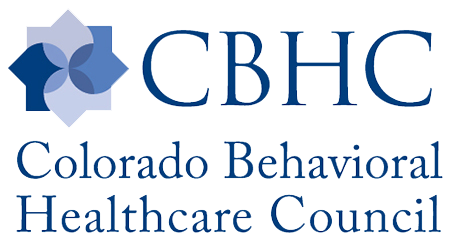We are at a critical juncture for behavioral health in Colorado. According to the Colorado Health Institute’s 2021 Colorado Health Access Survey, 1 in 4 Coloradoans reported poor mental health. More Coloradans died of drug overdoses in 2021 than in any other year in our history, with CDPHE projecting the state’s fatal overdose estimate for 2021 would exceed 1,800 individuals.
Meanwhile, the behavioral health system is being transformed by the convergence of numerous factors including the creation of a new Behavioral Health Administration, implementation of recommendations from the Behavioral Health Transformational Task Force, and dissemination of $400 million in opioid settlement funds. CBHC is committed to partnering with the state to transform our behavioral health system to ensure that all Coloradans, regardless of payor source, demographics, or geography have access to timely, high quality mental health and substance use disorder prevention, treatment, and recovery services.
Our Stance
Given the increasing needs in Colorado’s communities, CBHC believes behavioral health transformation should:
- Expand the ability of providers to respond to those who need or seek behavioral healthcare, and not divert funding to cover the new costs of regional intermediaries or expanded administrative personnel at the state level
- Promote funding models that incentivize value and quality rather than volume, and are flexible to meet the ongoing and emerging needs of communities, clients, and providers
- Address behavioral health workforce recruitment and retention issues by reducing administrative burden, including lengthy intake and assessments that can deter clients from receiving needed services; and the extensive documentation, data, and reporting requirements that pull valuable clinical staff away from direct care delivery
- Engage all voices, including consumers and providers, in transparent, participatory processes to collectively create a behavioral health system with improved access to care and strong health outcomes
- Build on the existing, strong network of CMHCs and MSOs, who must continue to play an essential in the behavioral health safety net.
Related Issues
Behavioral Health Reform Information
On April 8, 2019, Gov. Jared Polis directed the Colorado Department of Human Services to spearhead Colorado’s Behavioral Health Task Force. The mission of the task force was to evaluate and set the roadmap to improve the current behavioral health system in the state. In September 2020, the task force released its blueprint, as well as several other reports, that outline its vision.
Behavioral Health Transformational Task Force Recommendations
The Behavioral Health Transformational Task Force took place after the 2021 legislative session. It’s focus was how to spend the three years’ worth of ARPA funding wisely. They then created recommendations which will influence bills coming forward in the 2022 legislative session.
Find a Community Mental Health Center
If you are experiencing mental health or substance use issues at this time – or any time – there is a mental health center near you that can help.
Mind Springs Health Makes Waves
A recent article in the Grand Junction Sentinel, written by Janet Rowland, a member of the three-person…
Diversus Health Recognized as 2023 Organizational Lean On Me Award Recipient by Envision: You
Each year, Envision:You, a Colorado non-profit dedicated to advancing behavioral health care for the LGBTQ+ community, celebrates…
Celebrating May as Mental Health Month
As we celebrate May as Mental Health Month, it is more important than ever to have tools…
Colorado Behavioral Healthcare Council Names Kara Johnson-Hufford CEO
DENVER, May 1, 2023 – Kara Johnson-Hufford, MPA will join the Colorado Behavioral Healthcare Council (CBHC) as…




